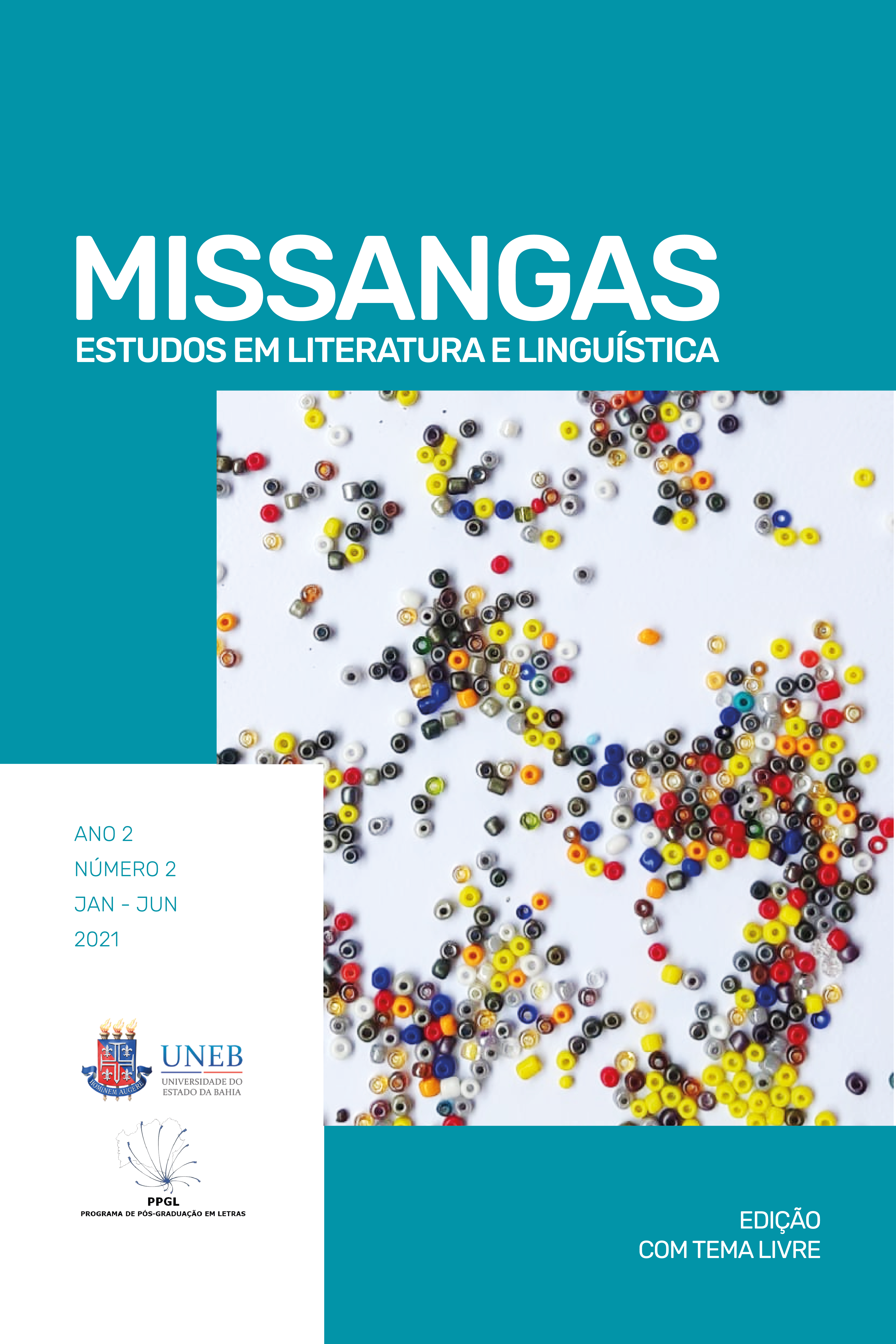HISTÓRIA, POLÍTICA E SOCIEDADE: UMA ANÁLISE TEMÁTICA DAS LITERATURAS AFRICANAS PÓS-COLONIAIS
DOI:
https://doi.org/10.53500/msg.v2i2.11989Keywords:
Pós-colonialismo, Literatura Africana, RomanceAbstract
This article analyzes a set of works representative of post-colonial African literature, based on thematic clippings that move between the history and politics of African societies. The work presents a series of critical readings on the works No time like the present (2014) by Nadine Gordimer, A Grain of Wheat (2015) by Ngugi Wa Thiong'o, The Plateau and the Steppe (2009) by Pepetela and Elizabeth Costello (2004) by J. M. Coetzee, in order to point out the great themes of these literatures, with emphasis on the colonial issue and its unfolding in the present, the political history of African nations and racial discrimination, as fundamental elements to understand the African literary universe.
Downloads
References
BOEHMER, E. Colonial and postcolonial literature: migrant metaphors. 2. ed. Oxford: Oxford University, 2005.
BONNICI, Thomas. Introduction to the study of post-colonial literatures. Mimesis, Bauru, v. 19, n. 1, p. 07-23, 1998.
CARBONIERI, Divanize. FREITAS, João F. SILVA, Sheila D. Rumos do romance africano de língua inglesa na contemporaneidade. Revista Investigações. v. 26 n.1, 2013.
COETZEE, John Maxwell. Elizabeth Costello. São Paulo: Companhia de letras, 2004.
GORDIMER, Nadine. O melhor tempo é o presente. São Paulo: Companhia das Letras, 2014.
HALL, Stuart. A identidade cultural na pós-modernidade. Rio de Janeiro: DP&A, 2004.
JULIEN, Eileen. African Literature in Comparative Perspective. Comparative and general literature. v.43, p. 15-24, 1995.
KANTER, Marcelo de Mello. A política externa e integração da África Oriental: um estudo sobre Uganda, Tanzânia e Quênia. Dissertação (Mestrado) Universidade Federal do Rio Grande do Sul, Faculdade de Ciências Econômicas, Porto Alegre, 2015.
MATA, Inocência. Literaturas em português: encruzilhadas atlânticas. Revista Via Atlântica, nº25, 59-82, São Paulo, jul.,2014.
MENEZES, Maria Paula. Os sentidos da descolonização: uma análise a partir de Moçambique. Catalão, v. 16, n. 1, p. 26-44, 2016.
NKOSI, L. Tasks and Mask: Themes and Styles of African Literature. Oxford: Longman, 1981.
OJAIDE, Tanure. Modern African Literature and Cultural Identity. African Studies Review, v. 35, Number 3, December, 1992 pp. 43-57.
OLIVEIRA, Adilson V. Literatura e política: as contradições do socialismo em “O planalto e a estepe”. Revista Ecos vol. 16, Ano XI; nº 01, 2014.
OLIVEIRA, Adilson V.; PIOVEZAN, Vitória; ALMEIDA, Thaís F.; BERSANI, Ana Cássia; PINHEIRO, Karen. Literaturas africanas: a história na composição narrativa. Revistas África[s] v. 5, n. 9, 2019, p.134-153
OLIVEIRA, Bruno R. Ngugi Wa Thiong’o: o percurso de um intelectual africano e a história do Quênia (1964-1985). MÉTIS: história & cultura. p. 205-228, jan./jun. 2018.
PAWLICKI, Marek. Perspectives on Past and Present Realities: Nadine Gordimer’s Voice on Social and Political Problems in South Africa. Kultura i Polityka, n. 15, p. 173-186, 2013.
PEPETELA. O planalto e a estepe. 1ªed. São Paulo: Leya, 2009.
PHELPS, Norm. Rhyme, Reason, and Animal Rights: Elizabeth Costello’s Regressive View of Animal Consciousness and its Implications for Animal Liberation. Journal for Critical Animal Studies, V. 6, n. 1, 2008.
RIESZ, J. De la littérature coloniale à la littérature africaine: pretextes, contextes, intertextes. Paris: Karthala, 2007.
ROSENFIELD, Kathrin. Coetzee e a censura: o ético na perspectiva do escritor. Revista Intuitio. Porto Alegre, v. 7, p. 05-16, 2014.
SALGADO, T.; SEPÚLVEDA, M. do C. África e Brasil: letras e laços. Rio de Janeiro: Atlântica, 2000.
SOYINKA, Wole. Indanre and other poems. London: Eyre Methuen, 1967.
SPIVAK, Gayatri. Quem reivindica a alteridade. In: HOLANDA, Heloisa.B. de (Org.). Tendências e impasses: o feminismo como crítica da cultura. Rio de Janeiro: Rocco, 1994. p. 53-75.
THIONG’O, Ngugi wa. Um grão de trigo. Rio de Janeiro: Objetiva, 2015.
Downloads
Published
Issue
Section
License
Os artigos publicados na revista Missangas são de inteira responsabilidade de seus autores e não refletem, necessariamente, o pensamento dos editores.


